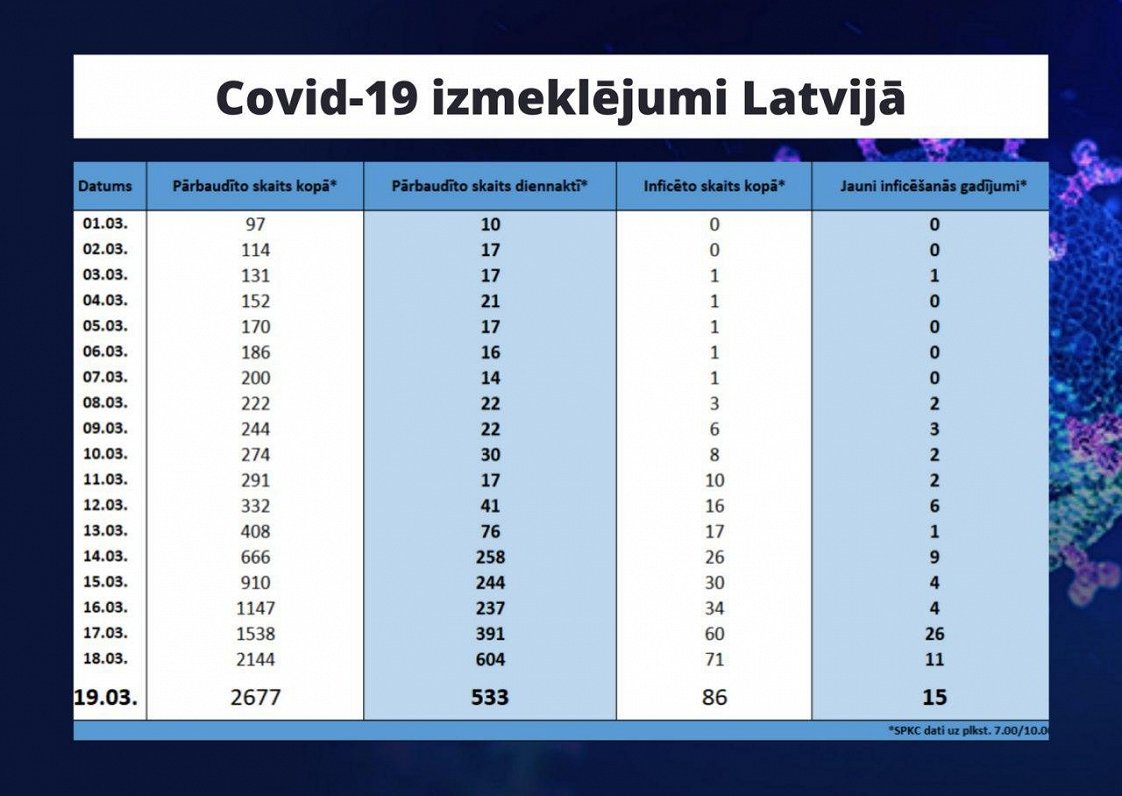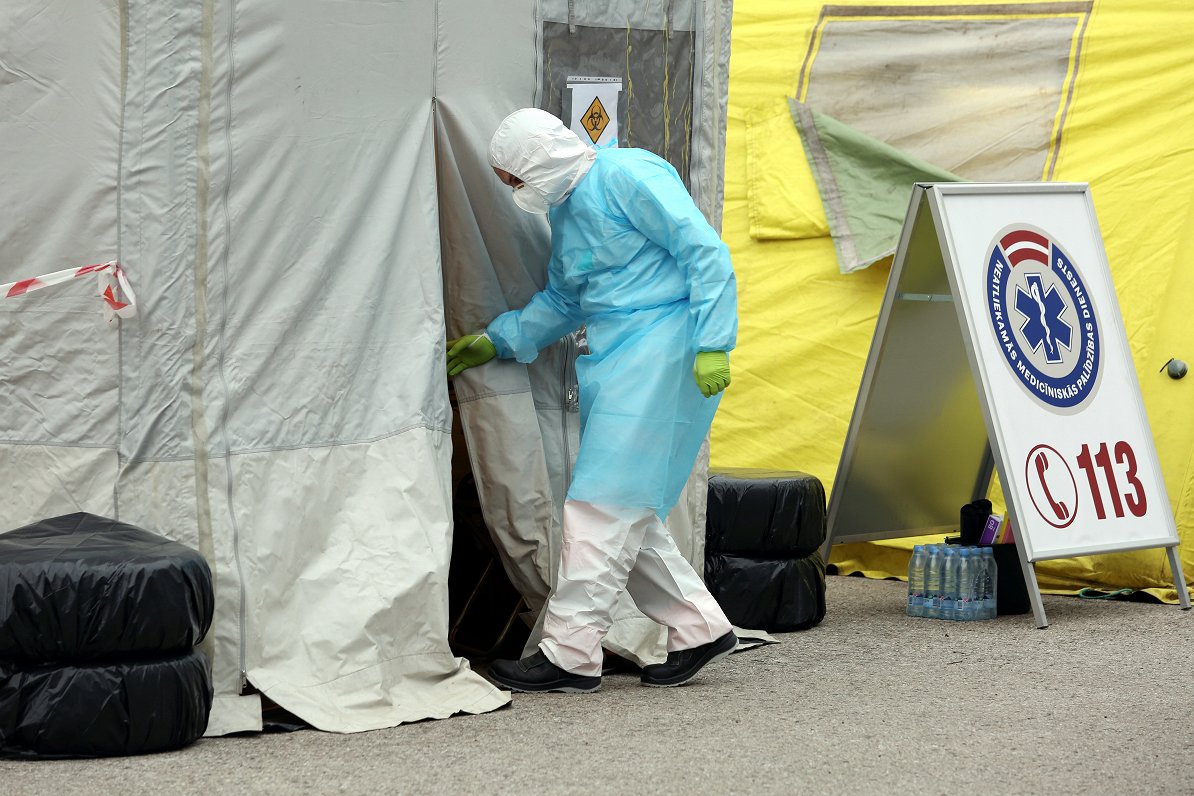The new figure was released by the Disease Prevention and Control Center (SPKC) which said that of 533 tests during the previous 24-hour period, 15 were positive.
In total 2,677 tests have been carried out since February 29.
Iepriekšējā diennaktī veikti 533 izmeklējumi personām ar aizdomām par saslimšanu ar Covid-19, infekcija apstiprināta 15 cilvēkiem.
— SPKC.gov.lv (@SPKCentrs) March 19, 2020
Līdz šim Latvijā kopā veikti 2 677 izmeklējumi pesonām ar aizdomām par Covid-19, apstiptināts 86 saslimšanas gadījumi ar COVID-19.
At lunchtime the SPKC released updated graphics showing the incidence and rough geographic spread of the disease by region.
Aktuālā informācija par COVID-19 Latvijā pic.twitter.com/qDEiBsHv8I
— SPKC.gov.lv (@SPKCentrs) March 19, 2020
A range of sweeping measures have been introduced in an effort to keep coronavirus at bay, including international travel restrictions and new regulations at retail points of sale
The full rules and regulations are available to read online in English, and all members of the public are urged to read them and comply in a spirit of solidarity. Social interactions are to be reduced to a minimum and frequent and careful hand-washing is urged as part of a policy characterised as "social distancing".
Relevant information in English is also available at the website of the Disease Prevention and Control Center (SPKC).
The table below shows the daily totals relating to COVID-19 in Latvia with the columns representing (from left to right) Date; Total number of tests; Daily number of tests; Total number of infections; Daily number of infections.

Meanwhile the number of confirmed COVID-19 cases continues to climb in neighboring Estonia and Lithuania, too.
In Estonia the March 18 total was 258 cases of coronavirus recorded in Estonia, with Harju County (101) and Saaremaa (70) having the highest number of counties. 2,020 tests have been conducted, said the Estonian Health Board.
In Lithuania LRT News reported 34 cases of coronavirus on March 18, including the first recorded case of domestic infection.
"We have the first cluster case, a person who was infected in Lithuania by another person who had returned [from abroad],” Health Minister Aurelijus Veryga said. “This is a cluster case; we can trace it. A family member was infected by another family member who had come home from abroad.”




























